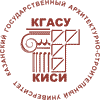About the authors
| First name, Middle name, Last name, Scientific degree, Scientific rank, Current position. Full and brief name of the organization, The organization address. | Alexander A. Vaniushev, Software Engineer, SMP-Neftegaz JSC, Almetyevsk, Russian Federation. E-mail: This e-mail address is being protected from spambots. You need JavaScript enabled to view it , ORCID: 0009-0000-0091-0686 Vladimir V. Mokshin, Candidate of Technical Sciences, Associate Professor, Department of Automated Information Processing and Control Systems, Kazan National Research Technical University named after A.N. Tupolev – KAI, Kazan, Russian Federation. E-mail: This e-mail address is being protected from spambots. You need JavaScript enabled to view it , ORCID: 0000-0002-7650-3419 Lenar F. Mavliev, Candidate of Technical Sciences, Associate Professor, Kazan State University of Architecture and Engineering, Kazan, Russian Federation. E-mail: This e-mail address is being protected from spambots. You need JavaScript enabled to view it , ORCID: 0000-0001-6301-0941 |
| Title of the article | Adaptive convolutional neural networks in intelligent transport systems |
| Abstract. | Problem statement. In modern intelligent transport systems, video surveillance is one of the key tools for monitoring the traffic situation, detecting anomalies, recognizing objects, and optimizing traffic. When developing computer vision systems, the need for careful selection of the model architecture and its learning parameters in order to achieve high recognition accuracy is an urgent task. The aim of the work is to develop approaches to improve the management efficiency and safety of road infrastructure using big data and machine learning algorithms in intelligent transport systems. The objectives of the study are: analysis of big transport data processing models and establishment of their limitations; evaluation of neural network models of Faster R-CNN and YOLO object detection; comparative testing of various modifications of YOLO models trained on a single set of video frames of urban traffic. Results. Comparative testing of YOLO models of v8–v10 versions on real urban traffic was carried out with an analysis of the influence of hyper parameters and sensor configurations on accuracy and performance. The data obtained demonstrate the high efficiency of the proposed approach with moderate computational costs. The customized YOLO models showed a significant improvement in recognition accuracy while maintaining near-real-time processing. Connecting additional data sources allows you to increase the stability of the system in difficult weather and evening conditions. Conclusions. The significance of the results for the infrastructure lies in the possibility of implementing scalable intelligent transport systems solutions without retrofitting the road network facilities. The integration of YOLO-video analytics, short-term forecasting and adaptive management forms a sustainable and self-adjusting transport infrastructure. For the further development of intelligent transport systems, it is necessary to interact with cartographic services and mobile navigators, providing two-way data exchange and proactive informing of road users. |
| Keywords. | intelligent transport systems, YOLO, machine learning, computer vision, big data, adaptive management, urban mobility, geo-services |
| For citations: | Vanyushev A.A., Mokshin V.V., Mavliev L.F. Adaptive convolutional neural networks in intelligent transport systems // News of KSUAE, 2025, № 2(72), p. 277-290, DOI: 10.48612/NewsKSUAE/72.25, EDN: PMWDDV |















